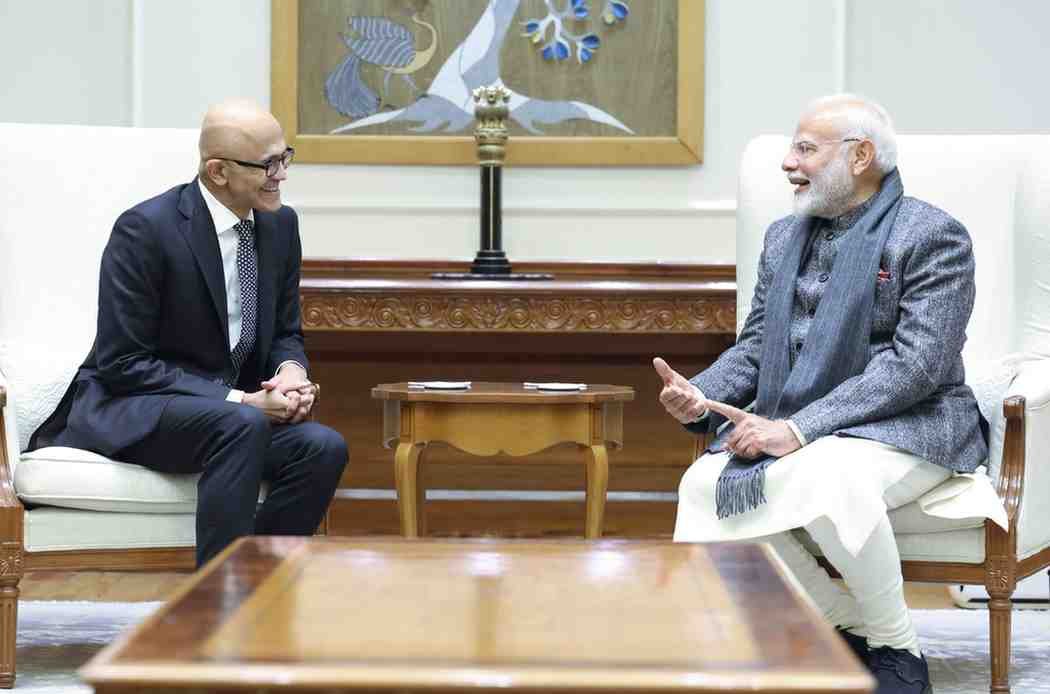Prime Minister Narendra Modi met with Microsoft Chairman and CEO Satya Nadella, expressing his enthusiasm for the tech giant’s expansion and investment plans in India. Modi took to X to share his thoughts on the meeting, saying it was a “delight” to discuss tech, innovation, and AI with Nadella.
PM said, “It was indeed a delight to meet you Satya Nadella. Glad to know about Microsoft’s ambitious expansion and investment plans in India. It was also wonderful discussing various aspects of tech, innovation and AI in our meeting.”
Nadella reciprocated the sentiment, thanking Modi for his leadership and emphasizing Microsoft’s commitment to making India an “AI-first” nation. He highlighted the crucial role India’s developer community plays in creating cutting-edge solutions that address local challenges and have global applications.
Nadella thanked PM Modi for his leadership and said, “Excited to build on our commitment to making India AI-first and work together on our continued expansion in the country to ensure every Indian benefits from this AI platform shift.”
India has emerged as the fastest-growing market on GitHub, with 13.2 million developers utilizing the platform. This growth is expected to propel India past the US as the largest developer community on GitHub by 2027. Additionally, India boasts the second-highest number of generative AI projects on GitHub, after the United States.
Nadella praised India’s developer community, saying, “It’s fantastic to see how they’re applying our technology and tools to build the future for India and the world.” Microsoft has maintained a significant presence in Hyderabad, with a workforce of 10,000 employees and substantial investments, including a 600 MW data centre capacity in the state.
The meeting between Modi and Nadella underscores the Indian government’s efforts to foster a favorable business environment and encourage foreign investment in the country’s burgeoning tech sector. As India continues to grow as a hub for innovation and technology, collaborations like this are likely to play a vital role in shaping the country’s digital future.








